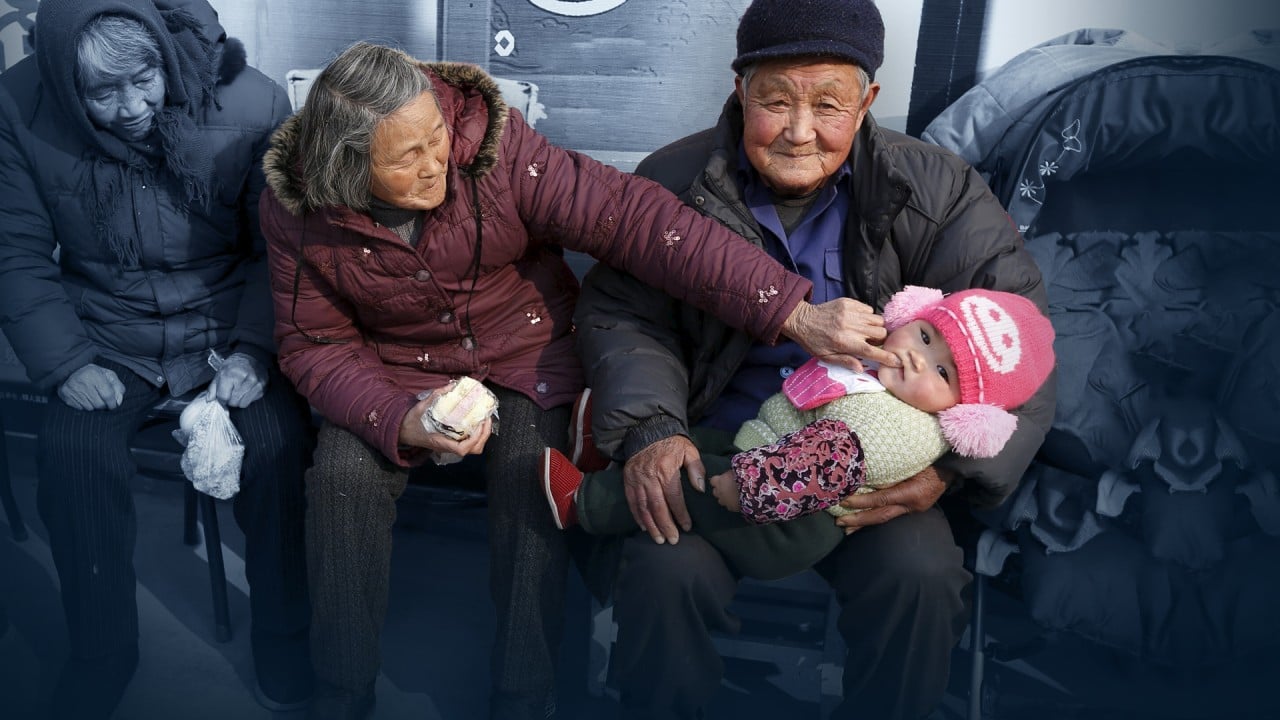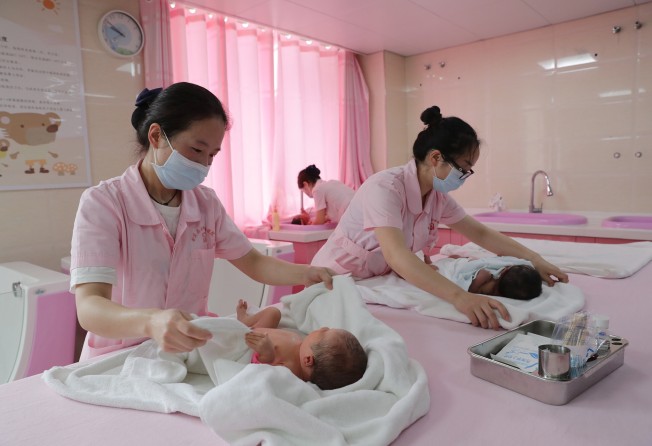
07:02
China tackles challenges posed by its ageing population

Members of China’s Communist Party (CCP) have a personal obligation to help tackle the country’s plunging fertility rate by having three children, according to a commentary that has since been scrubbed from the internet.
“No party member should use any excuse, objective or personal, to not marry or have children, nor can they use any excuse to have only one or two children,” said the article published by China Reports Network, which was published last month but started gaining traction on Wednesday.
“Every CCP member should shoulder the responsibility and obligation of the country’s population growth and act on the three-child policy.”
Although the original article can no longer be found on China Reports Network, screenshots have been widely circulated on social media and a related hashtag had garnered more than 5.7 million views on Weibo, China’s Twitter-like social media platform, as of Thursday afternoon.
Thousands of Weibo users expressed shock and indignation at the commentary, with one citing the Law on the Protection of Rights and Interests of Women which stipulates individuals have the freedom not to give birth.
The opinion piece comes amid growing concern about the country’s population crisis, which has pushed local governments to roll out a series of pronatalist policies to address the declining fertility rate and rapidly ageing population.
Births in China have been falling for four consecutive years since 2016 and hit a record low of 12 million in 2020. In some provinces, births are set to drop by close to 20 per cent this year.
Some demographers estimate China could go into population decline as early as this year.
In May, China allowed couples to have three children, ending the two-child policy introduced in 2016. China had a controversial one-child policy, which was strictly enforced with punishments including fines for violators and forced abortions, from 1980.
Beijing has also made it cheaper and easier for couples to have children by increasing parental leave and providing direct payments.
Part of the government’s motivation to crack down on the private tutoring sector and property market in school districts is to address the rising costs of education, which remains a major deterrent for parents thinking of having children.
In addition to China’s low fertility rate, demographers are worried about the country’s ageing population.
According to the 2020 census, 264 million Chinese are aged 60 and above, accounting for 18.7 per cent of the 1.4 billion-strong population.
Last month, China issued new guidelines to better accommodate the needs of the elderly, including strengthening health care facilities, and cultivate a more comprehensive silver economy.
The commentary said party members unable to have children because of age and health conditions should “educate, guide and assist family members and friends to proactively have three children”.
“[Party members] should never do nothing when family and friends are not getting married or giving birth, and should never be indifferent about them only having one or two children with any excuse.”
The CCP has more than 95 million members.
China Reports Network is affiliated with the China Foreign Languages Publishing Administration, also known as the China International Publishing Group, a state-owned organisation.